If you want this Boston apartment, you’ll have to get past this 22-year-old — and pay him thousands
Massachusetts lawmakers may put an end to the tenant-paid broker fees — typically equal to one month’s rent — often required to sign a lease. We followed one broker as he spent a day earning his keep.
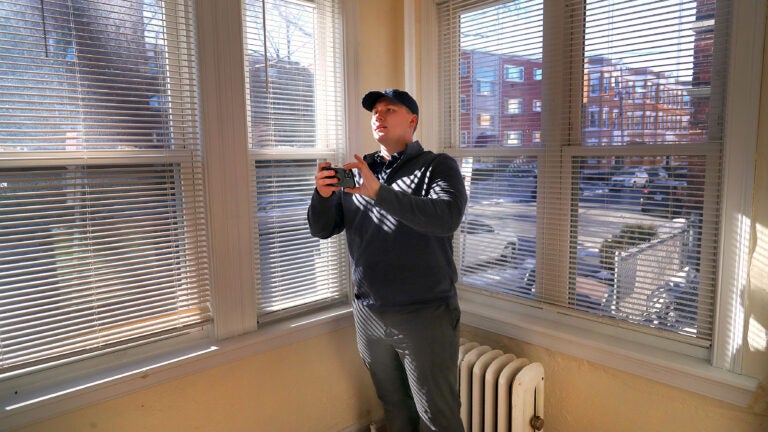
It is a freezing winter evening, and Thomas Macdonald cannot find apartment 41A.
He figured it would be on the fifth floor of this 19th century building in Boston’s Symphony neighborhood, but there, the highest number was 39. Now a bead of sweat dribbles down the side of his forehead as he leads a trio of Northeastern University students in sweatpants back down four flights of creaking stairs and into a narrow basement.
Roughly 10 minutes of searching and two calls to the building owner later, he finally discovers apartment 41A, at the bottom of an outdoor staircase that is hidden by a stand of bushes.
Now, he can go to work.
The current occupants of unit 41A sit awkwardly in their bedrooms as Macdonald leads the students around the basement apartment. The place smells vaguely of cat urine, and there is a network of pipes running across the ceiling that may, or may not, transport the building’s sewage. Macdonald explains that if they want a three-bedroom for around $4,500, this is the most spacious option they’ll find.
“You have to be straightforward with people about what’s realistic for them,” Macdonald says after the tour as he walks back to his Honda Civic, parked hastily behind a food truck. “They already hate us.”
By “us,” Macdonald means Boston’s army of rental brokers, and “hate” may in fact be an accurate descriptor of how many renters feel about them.
The word “broker” is a charged term in Boston these days, invoking a sense of dread — a knot in the stomach — among renters who associate them with jingling rings of apartment keys, ill-planned tours, and the often-massive sum they demand, known as a broker’s fee, before you can sign a lease.
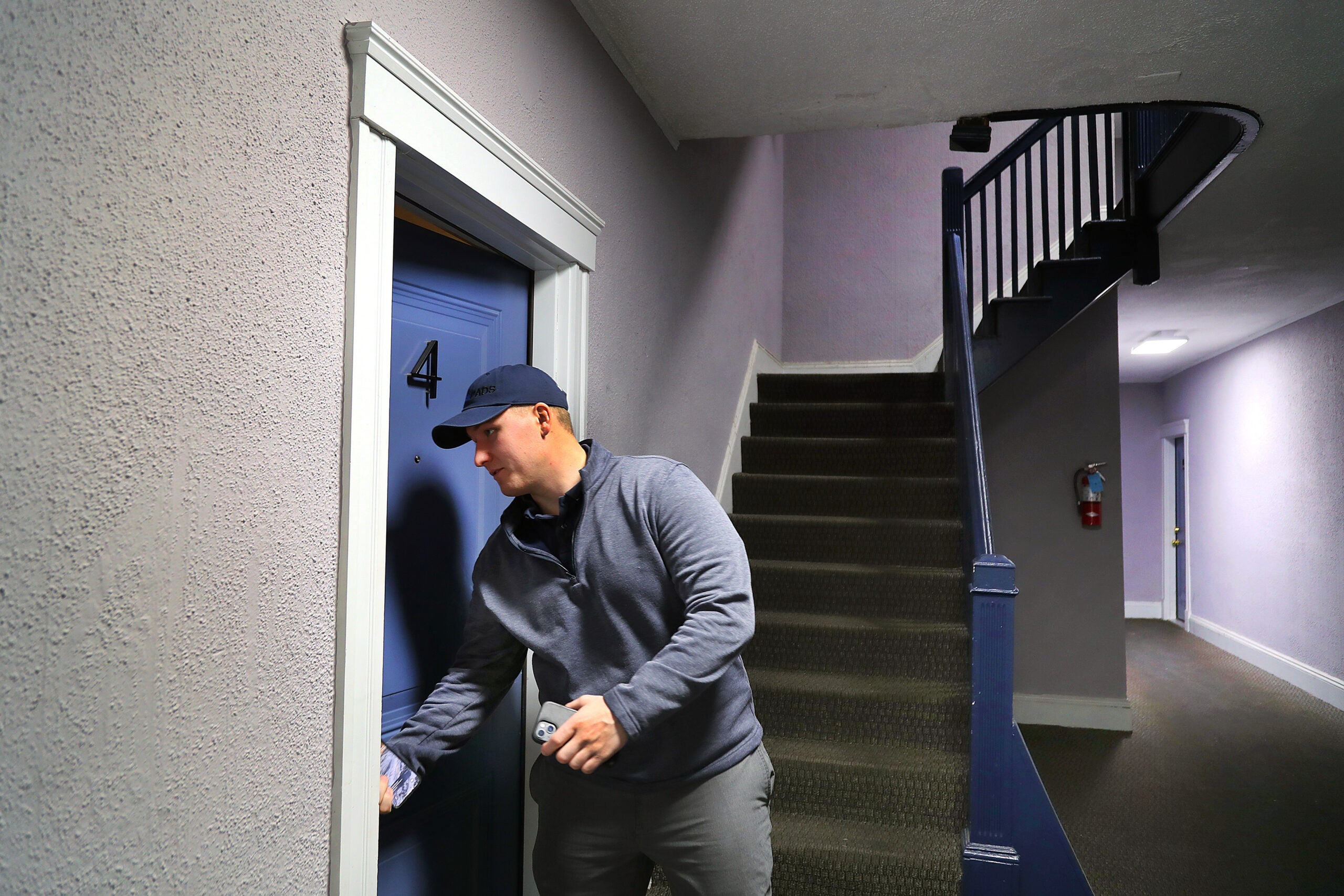
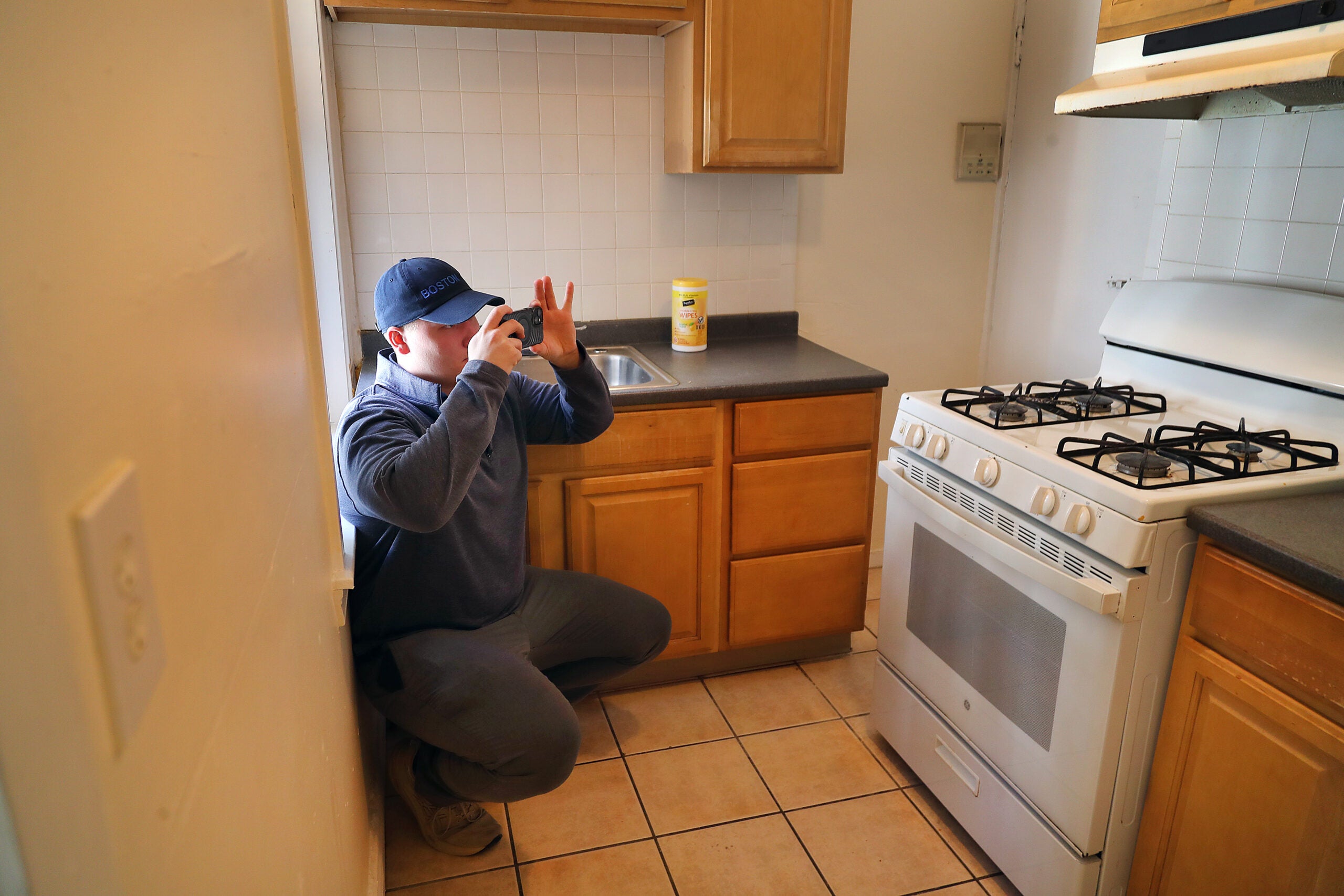
That fee is typically equal to a month of rent, and combined with a security deposit and other required payments, can contribute to a five-figure upfront move-in cost in a rental market that is already jaw-droppingly expensive and stacked against renters.
But beyond the dollars, much of the antipathy toward brokers stems from the fact that many renters do not see what, if anything, brokers do on their behalf.
With the ubiquity of online listings, renters can easily search for apartments themselves, yet in many cases, they still have to pay a broker to sign a lease. And after New York City outlawed tenant-paid broker fees last year, Boston and neighboring cities like Cambridge and Somerville constitute the only major urban center in the United States where renters are obligated to pay.
That could soon change. Momentum is building for a law in Boston that would charge the fees to whoever hires the broker between the landlord and the renter, rather than allowing landlords to decide. Key legislators have signaled their support, and Governor Maura Healey has signed on.
Some brokers have taken that recent push as an affront on their profession, and warn that the housing market cannot function without them. Their job, they say, is to find renters a good deal.
Renters aren’t so sure.
“We’re expected to pay this guy?” one of the students remarked under his breath as Macdonald wandered through the Symphony building searching for apartment 41A.
Macdonald has only been a broker for a few years, but he knows the business. He wears a navy suit bulky enough for a professional wrestler and oozes with the confidence of a 22-year-old, which he is. He crushes energy drinks instead of coffee, and the empty cans litter his car’s floorboards. He fires off text messages at red lights, because, he says, “time is money.” He hopes to parlay the money he makes leasing rentals into investment properties someday.
Macdonald is the youngest broker at Jacob Realty on Newbury Street, one of a handful of brokerages run by Boston real estate mogul Demetrios Salpoglou. He lives with his parents in New Hampshire and starts his day around 7:30 a.m., after an hour’s drive to work.
On a recent day, Macdonald settles into his desk near a drafty window overlooking Newbury Street. The room fills with chatter of brokers calling landlords and loudly drafting voice-to-text messages to prospective tenants. In a back room, there is a wall with thousands of keys to apartments Jacob helps rent.

Macdonald usually starts his days scanning Salpoglou’s database of 215,000 rental units for apartments that are about to hit the market or that have lingered for awhile.
This morning, he has spotted a couple of one-bedrooms in Allston that are about to hit the market, both renting for over $2,000 a month.
“Can you make the moving costs any easier?” he asks the landlord on the phone, angling for a sweetener he can offer would-be tenants, like a break on the security deposit.
The landlord says no.
***
Real estate brokers have been around in Boston for as long as people have needed homes. Brokers say they serve an important purpose: helping people navigate the cutthroat housing market to find a home where they can build their lives. But they tend to work mostly on behalf of landlords in this housing market, where homes are in high demand. Those owners typically have enough leverage to push the broker fee off to their tenants.
Sites like Zillow and Apartment List allow apartment-hunters to narrow down options, but in many cases, they can’t tour a unit without interacting with a broker who has listed the place on a landlord’s behalf.
It can be a lucrative venture. Macdonald would not say how much he makes in a year, but its an eat-what-you-kill business. Most rental brokers’ compensation consists entirely of fees they charge on apartment rentals, and it can vary widely from broker to broker. A successful broker can easily make six figures by leasing expensive apartments at an efficient clip. Others who lease just a few units a month make considerably less. There are thousands of brokers in Boston battling for the listings and leases of the city’s more than 300,000 apartments. On Newbury Street alone, there are several dozen brokerages.
“Brokers and leasing agents provide a valuable service, and we get compensated for those services,” said Eric Shabshelowitz, vice president of the luxury real estate agency Cabot & Company. “Years ago, it was landlords who paid the fee, but the market has changed.”
Some brokers focus on hawking cheaper rentals to Boston’s flood of college students. Others work in specific neighborhoods.
Rob Oteri, who founded the rental site JPRentals, focuses mainly on apartments in Jamaica Plain, where he lives. He said he tries to maintain personal relationships with landlords and works diligently with prospective renters to help them find the best place for them in their price range.
When brokers do their job well, Oteri said, the fee shouldn’t be quite so painful. But theirs is a volume business, and some brokers simply try to lease as many units as possible as quickly as possible. That leads to instances, he said, when brokers show up to lead apartment tours without ever having seen the unit.
“I certainly understand the frustration with some brokers who maybe have a ‘turn and burn’ mentality about the work,” Oteri said. “But a good broker earns their money by working closely with tenants to get them the best deal.”
Macdonald’s day has taken him into Allston, near Commonwealth Avenue, where he has picked up keys from one of the city’s biggest student landlords, Alpha Management, so he can take photos of Alpha apartments that will soon come on the market.
His first stop is a clean but tiny one-bedroom with a closet too thin for a person to stand in. It has nice natural light and a full kitchen.
“This one will go fast,” he says while taking note of the “standalone closet.”
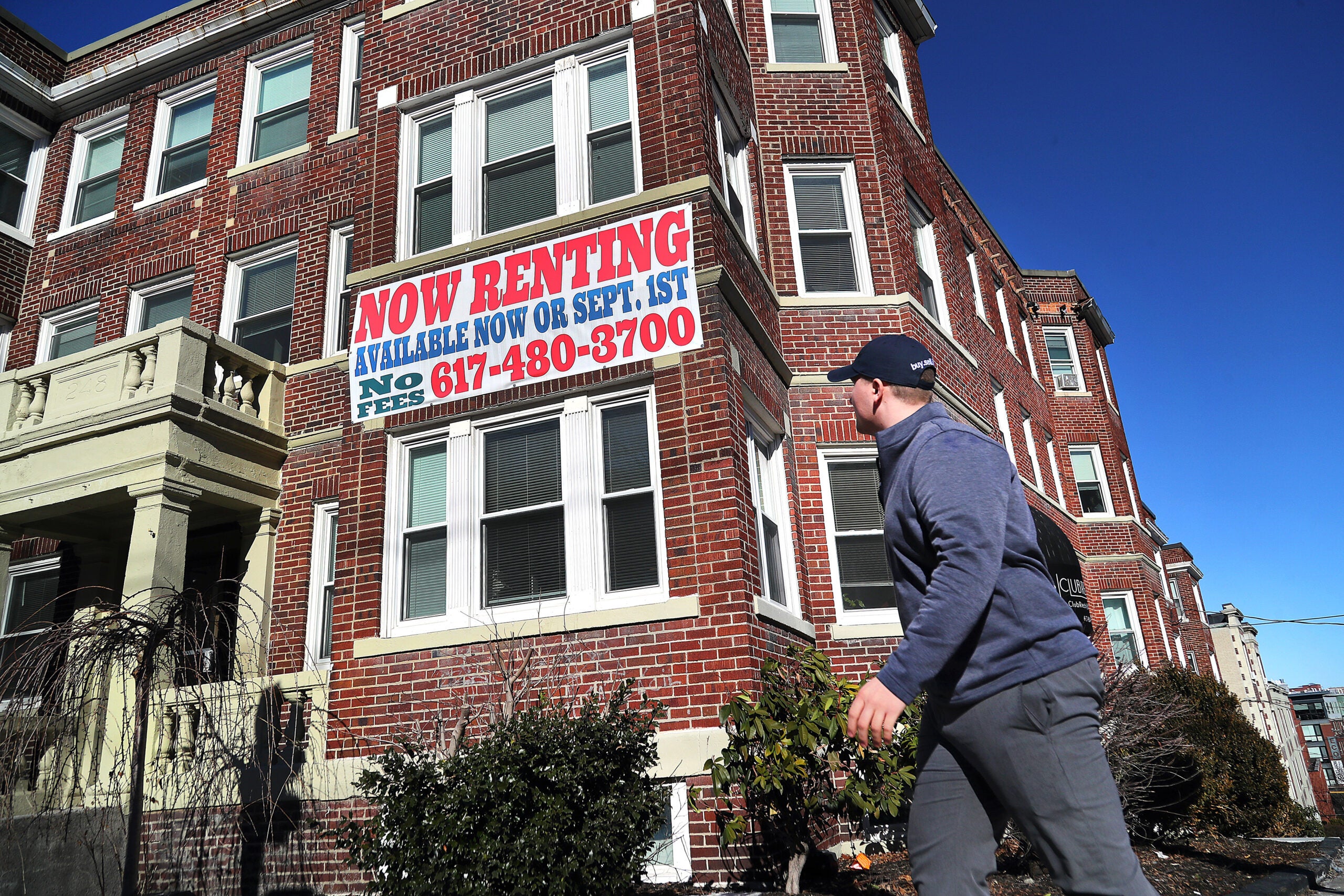
As he drives toward his next stop, he defends the value of his profession.
Finding apartments without brokers, he says, would be harder, because there would be no one to cultivate and centralize listings and organize tours. And his knowledge of the market helps him find renters the best deals, which is his top priority.
“It’s the free market,” he says. “I love it.”
The next unit, a few blocks away, is quite different: An upper-floor studio with a big window and a sprawling view of the city. There’s a new mattress, a large bag of marijuana on top of the fridge, and a fresh eviction notice in the entryway. Macdonald takes a few photos.
Then he shows those Northeastern students the basement apartment and returns to the office, where he begins posting his photos and updating listings on Jacob’s website. He also looks around for more three-bedroom options for the students.
Around 8 p.m., Macdonald gets a text.
Thanks for showing us around. My roommates and I will be looking elsewhere.
He curses and lets out a sigh.
“That’s the name of the game — I did all of that work, showed those kids around, and at the end of the day, I didn’t make a dime,” Macdonald says. “Gotta work harder tomorrow.”





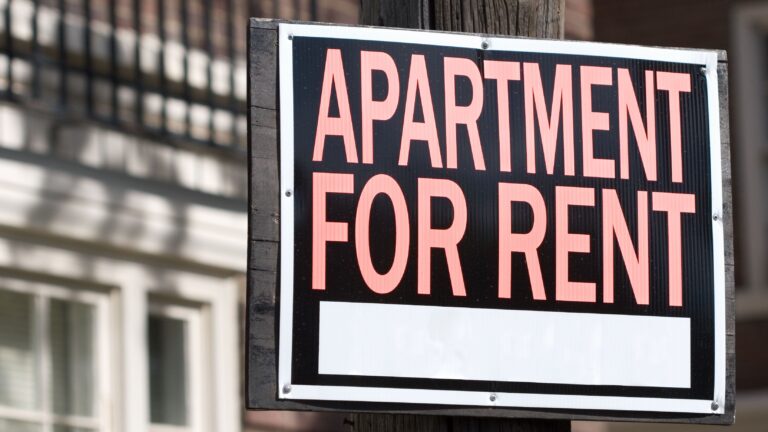


Conversation
This discussion has ended. Please join elsewhere on Boston.com